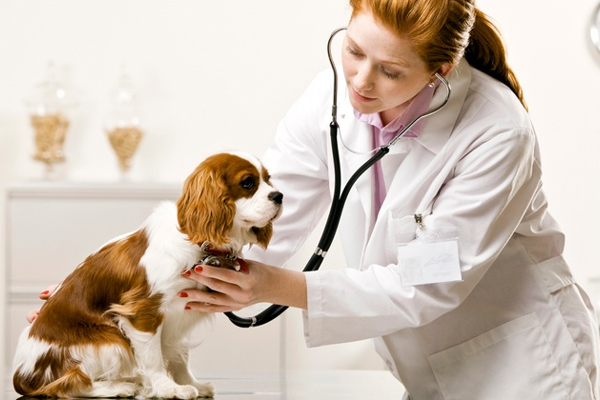



|
Tweet
Pin
It
|
To practice as a veterinarian it is essential to have a Bachelor's degree in Veterinary Science (B.V.Sc.). To be eligible for the Bachelor's in Veterinary Science and Animal Husbandry (B.V.Sc & AH) course, a candidate should have passed the class 12 examination with science subjects such as Physics, Che mistry and Biology.
Selection : Admission to most veterinary colleges is on the basis of results obtained in the entrance examination conducted by the concerned universities. Veterinary Council of India conducts an 'All India Common Entrance examination' (AICEE) for admission to first year Bachelor of Veterinary Science (BVSc) & Animal Husbandry (AH) degree course for filling up 15% of the total number of seats of each veterinary college of all states; about 36 colleges where Indian Veterinary council Act, 1984 extends. This Entrance exam is usually held in the month of May each year. For admission to masters degree programme, an All India Entrance Examination is conducted by the Indian Council for Agricultural Research (ICAR).
Duration : The duration of the BVSc & AH varies from four and a half years to five years, including the period of internship. The first four years of the training programme are devoted to imparting skills through theoretical and practical training in various disciplines, like anatomy, physiology, biochemistry, nutrition, livestock management and production, production technology, pathology, microbiology, pharmacology, genetics and breeding, gynaecology, surgery, medicine and animal husbandry extension, among others and the fifth year is devoted to hands-on training, of which six months is through internship. The internship includes three months’ training at the Teaching Veterinary Clinical Service Complex (TVCSC) under the supervision of a senior clinician and in field veterinary hospitals on a rotation basis. Veterinary students undergo a one-month practical training in livestock production and management at animal farms, then one-month training in poultry production and management and another one-month training in livestock products’ technology and other services. Apart from learning to treat animals, training is also provided in dairying and poultry sciences. Generally after doing B.VSc, most candidates go on to do a post graduation, namely a Master in Veterinary Science. The Postgraduate course in Veterinary Science (M.V.Sc.) is a 2 year course and the candidate has the option to specialize in areas like medicine, surgery, anatomy, bacteriology, biochemistry, cardiology, dermatology, microbiology, molecular biology, anaesthesia, gynaecology, pathology, toxicology, virology pharmacology, etc. For jobs in the research and teaching areas, a post-graduate degree in veterinary science and animal husbandry is a minimum qualification, while a Ph.D. is preferred.
Personal Skills :
The first and foremost attribute required for a good veterinarian is genuine
love and compassion for animals. A good vet must read the signs from the
animal's behavior and diagnose the ailment. As the animals cannot describe
the problem, vets have to diagnose it skillfully. Vets must also be able
to handle emergencies and work in physically disagreeable conditions,
or in rural areas where working hours may be long and irregular, and working
conditions uncomfortable. Working with large animals requires physical
stamina and quick body reflexes to tackle the animal's moody behavior
and should be able to instinctively gauge the animal's condition. A vet
should have the ability to put the animals at ease, to do teamwork, have
powers of observation and self reliance, adaptability, indifference to
the occasionally disagreeable conditions of work. He needs to be extra
sensitive and patient.
Click on the following link for the details of Indian Institutes :
» Animal
Husbandary Diploma Programme (AHDP)
» Bachelor
of Veterinary Science and Animal Husbandry
» Master
of Veterinary Science
Overseas Institutes :
» Institutes
in USA
» Institutes
in Canada
Find it Useful ? Help Others by Sharing Online
Comments and Discussions |
Related
Career Options
|
|||
|
|